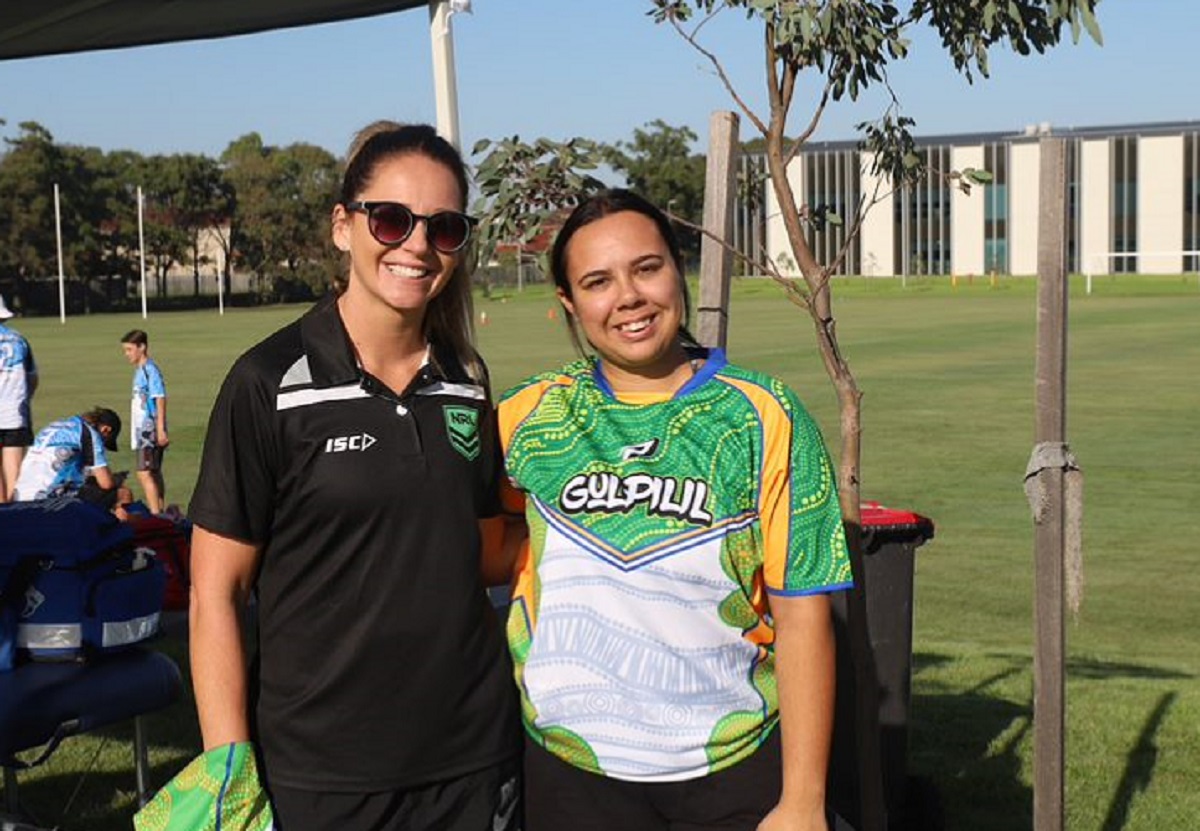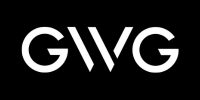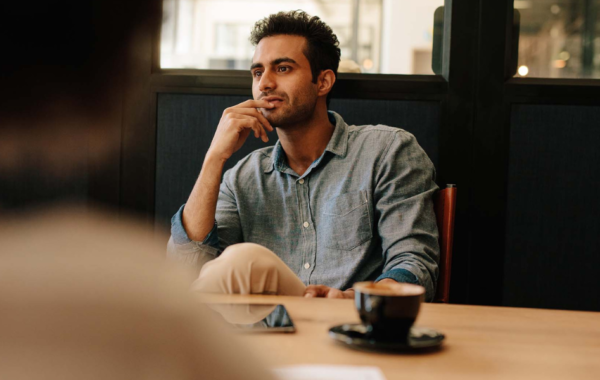
Closing the gap – GWG partnering with the NRL School to Work program
The NRL School to Work Program was developed in response to research highlighting that Indigenous youth who had not found an employment or training pathway six months after leaving school had a significantly higher chance of being long term unemployed. Funded and supported by the Department of Prime Minister and Cabinet and 11 of the 16 NRL clubs, the program uses the positive profile of rugby league to support and encourage students to achieve their HSC and transition from school to employment or further education.
Over 2,500 students have completed the groundbreaking program since its inception in 2012, with a record number of 500 students graduating in 2020. Students receive:
- One-on-one career planning and mentoring;
- Assistance to create a career development pathway;
- Relevant work experience and employment opportunities;
- Ongoing support for 12 months post-school; and
- Opportunities to participate in cultural activities
GWG are partnering with NRL School to Work to promote the diverse career pathways available to young Indigenous people and help identify available work experience and employment opportunities. We sat down with NRL School to Work Project Officer, Charmaine Piper, to learn more about the program, her role and how local organisations can get involved.
Tell us about your role in the program and how students get involved.
I work with Year 11 and 12 students who identify as Aboriginal or Torres Strait Islander to help them develop the skills and confidence they need to manage the transition to life after school. Students that come to our program don’t have to be football players; what we do is use the profile of the sport to engage and support our students with work experience, mentoring and leadership opportunities.
We work directly with schools, partnering with Aboriginal education officers, career advisers or other senior leaders to identify eligible students that are preparing to go into Year 11 who would benefit from the program and are keen to be involved. We look at a range of things including how engaged the students are with school – or how engaged they might be with the assistance of the program – and we’ll have early discussions with students around their motivation and plans for life after school. There’s a lot of different things to consider, but perhaps the most important is the student’s commitment to being engaged and involved. This program isn’t about us doing things for the students or forcing them to do things they don’t want to do; it’s built on empowering them to develop the skills and confidence they’ll need to succeed in the workforce. So we’re really clear from the outset with students that we expect open communication and accountability both ways and that two-way partnership is where the empowerment and confidence-building starts.
How will the partnership with GWG benefit students in the program?
GWG has consultants with a wide range of experience in a wide range of sectors, so this partnership provides our students with opportunities to understand the true breadth of what’s out there in terms of career paths. And that is really important for our students, because sometimes they don’t know what they want to do or they don’t even know what’s out there. So working with GWG will help our students develop a broader view on different sectors and provide exposure to a range of organisations in a way that will be really valuable to their career planning. They might see an organisation – perhaps one they may not have otherwise have known about – and say, “yeah, that’s definitely where I want to get to” and we can work with them to develop a plan around what they would need to reach that aim. What we’re working towards is making that real-world connection into different sectors, and that exposure through a partnership like this is critical to that.
What does a typical day look like for you?
Every day is really different! At the core of how we operate is going into schools, working with our students one on one and in groups. So I might go in and deliver a workshop on how to write a resume or on student wellness and different activities that they can do. Even in those group settings, my approach is really to target each student’s individual needs because each student will be at a different point in their journey. We might have some students, for example, who are thinking about their resume for the very first time, and others who are well along that path already. So I really look at each individual student and work through what they need to get the most value from the program. And we’ll also work one on one over time to build that reciprocal partnership; so when I leave from a school visit, each student will go away with something to work on and I’ll have something to work on too.
The other really important (and fun!) side of our work is the cultural and leadership activities we do with our NRL clubs. For example, in the middle of last year we did a jersey launch for the NRL’s Indigenous Round with the Newcastle Knights. We had one of our school’s dance groups perform at the launch – and usually we’d do that at the game with crowds – but it looked a little different for us in 2020. There’s also times where our students interact with the players; we might watch a training session or have a barbecue with them. And we do a lot of connecting with community so students can connect with their culture and learn, depending on where they’re at in their own cultural journey as well. So what I do day to day definitely varies!
For me, everything I do in my day to day role is about building confidence in these students to empower them to move forward in their life after school with the confidence to pursue whatever they want to pursue. And you can really see that the more our students put into the program, the more they get out of it. In that way we’re already simulating what happens in the workforce and modelling positive reciprocal working relationships.
What do you love most about working with the program?
I love working with the students and seeing them engage and build confidence in themselves to be able to do things. And I really love it when our students can see that growth in themselves and get excited about it! Students will often tell me about something they’ve done – whether they’ve gone to an interview or applied for a position – and they’ll say “thank you so much for your help, I couldn’t have done this without you”, and my response is always “no, no, this is all you – you should be so proud of yourself and what you have achieved!”. Being part of those moments when a student has taken really big steps forward and can reflect on their achievements with pride and self-confidence is priceless.
Can you share some student success stories with us?
There are so many stories of student success! To begin with, all of the students that have gotten through this last 12 months have really done themselves proud. It’s been really difficult for everybody and it’s been amazing to see how many of our students have come out of this challenge having grown and not let the situation set them back.
More specifically though, a couple of examples come from having recently supported two students through their experiences of successfully applying for traineeship roles with Lake Macquarie City Council. The first of these was a young man who had a really specific career goal from quite early on. He worked really hard and had an opportunity to go for an interview as a trainee in his dream industry while he was still at school, but unfortunately was unsuccessful. So that was a real setback for him in many ways, and I really had to coach him into looking at other opportunities and not just limiting himself. He was a really quiet kid and his teachers would often say it was hard to get him out of his shell, so we worked together closely and I coached him through each step of the process of the application and interview and he’s really flourished in confidence. He got the job and he’s working successfully now and that’s been a really great outcome.
The other student who we supported as she successfully achieved a position at Lake Macquarie City Council has taken on a Works Assistant role and her confidence has really grown to get her to that point. It’s a really male-dominated field, so she had some early worries about applying for that kind of role and being asked to do things outside of her capacity. So I would coach her through what it looks like working with people who understand that her strengths might be different and valuing the benefits that brings to the workplace, and she grew in that self-belief and is going really well.
How can local organisations get involved in NRL School to Work?
There are so many ways to get involved with the program. We really love to be creative in what we can do for our students and there’s so much value in local organisations getting behind that to help create different experiences and show them what the next stages of their life could look like.
We run career days where we invite employers to come along to meet students and give an overview of their organisations, so that’s a great way to get involved. We also run other activities like touch footy carnivals where organisations can get together and put a team in (you might even find yourself competing against a retired NRL legend or two!), and we love to bring organisations into schools where we can, too. We encourage organisations to incorporate support for the program in their Reconciliation Action Plans and recruitment strategies, and to promote their passion for the program with their colleagues and communities.
But perhaps one of the most impactful ways of getting involved is to provide work experience, traineeships, apprenticeships and other employment opportunities for NRL School to Work Graduates. We always welcome new opportunities to help our students see the diversity of career paths available to them!
_ _
Has this blog prompted you to think about the kinds of work experience or employment opportunities your organisation could offer? Reach out to Charmaine Piper to chat through how our partnership with the NRL School to Work program can support you to make a meaningful difference on 0459 861 450 or email cpiper@nrl.com.au



